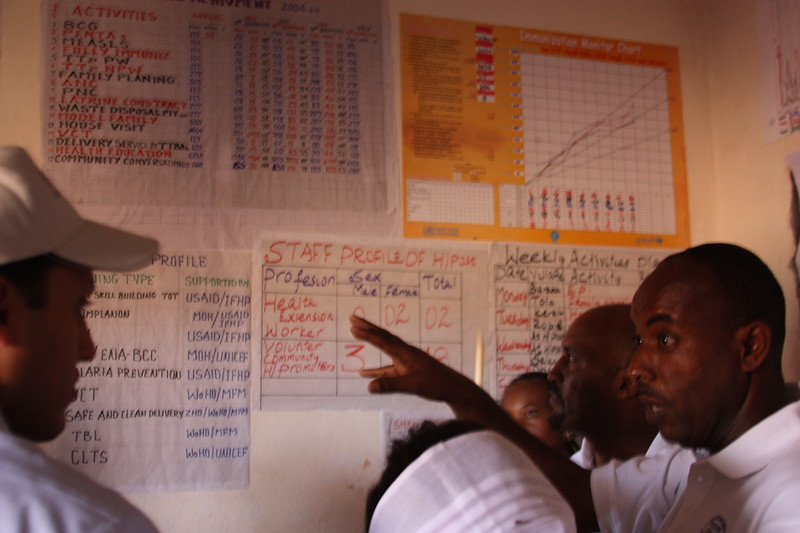What areas in Africa have the most critical lack of data and what needs to be done about it? What lessons can be learned from existing data innovations in Africa? What other data revolution principles and concrete actions should Africa adopt? How do we reinforce the data capacity of African development actors?
These are just some of the questions posed at the recent High Level Conference on the Data Revolution in Addis Ababa, Ethiopia, which was tasked with creating a roadmap for the data revolution in Africa. The conference was convened by the UN Economic Commission for Africa, African Development Bank, UN Development Program, and the African Union on the sidelines of the Conference of Ministers of Finance and Economic Planning. The two-day event brought together African policymakers, civil society groups, and open data advocates, and resulted in an Africa Data Consensus, which will be adopted by the African Ministers this week.
The Consensus lays out the challenges of reaching a data revolution in Africa and recommends actions that African country leaders and the data community should take to overcome them. Our Delivering on a Data Revolution in Sub-Saharan Africa report was one of the data community’s core inputs to the Consensus, so we were pleased to see the adopted version echoed many of our concerns and priorities. For example, aligned with our report, the Consensus calls for strengthened national statistics offices, for open data, and for governments to dedicate more of their own resources to producing and disseminating data.
Importantly, the Consensus also raises the point that data should be driven by country needs; when data is donor-driven (often the case today), it typically fails to align with national priorities. However, beyond calling for greater funding from country governments, the Consensus falls short in addressing the problems of supply-driven data—namely misaligned and perverse incentives.
We agree countries should take the lead through ensuring sustainable domestic financing; however, donors have been and will likely remain (at least in the foreseeable future) deeply embedded in the collection and analysis of data within many African countries. This means, if countries want better data, governments must work hand-in-hand with donors to ensure programs and initiatives prioritize core statistical data. As we’ve posited before, one strategy for doing this is through a data compact, or government-donor agreement whereby funding is directly linked to progress on improving the coverage, accuracy, and openness of key statistics. This would create the right incentives for more relevant data and for better donor coordination.
Still, the Africa Data Consensus is a big step towards realizing a data revolution in Africa and we are looking forward to the forthcoming roadmap. We’re also particularly excited at the timing of the Consensus—it should provide interesting fodder for our event next Monday (April 6) on the challenges and successes of collecting better statistics in Africa. We’re sure our speakers, including Statistician General Dr. Yemi Kale, who oversaw the revision of Nigeria’s GDP, and Morten Jerven, author of “Poor Numbers,” might have a few comments to make. We hope you’ll join us or tune-in to the live stream to hear what they have to say!
CGD blog posts reflect the views of the authors, drawing on prior research and experience in their areas of expertise.
CGD is a nonpartisan, independent organization and does not take institutional positions.





